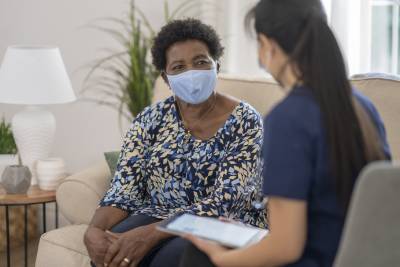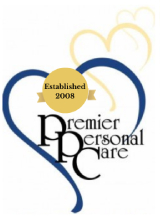COVID-19 in Bucks County, Pennsylvania

Symptoms of Coronavirus Disease
The coronavirus pandemic is a global health issue. According to the CDC, the risk for severe illness from COVID-19 increases with age and is more likely in those with underlying medical conditions. Infected patients have experienced a wide range of symptoms, including:
- Fever or chills
- Cough
- Sore throat
- Congestion
- Shortness of breath
- Fatigue
- Muscle/body aches
- New loss of taste/smell
- Nausea/vomiting
- Diarrhea
Emergency coronavirus warning signs include:
- Persistent chest pain or pressure
- Trouble breathing
- Pale, gray, or blue-colored skin, lips, or nail beds (depending on skin tone)
- New confusion
What to Do in the Event of Infection
Individuals with COVID-19 can spread the infection 48 hours before they test positive or experience symptoms. If you or a loved one is experiencing symptoms, contact your healthcare professional immediately. Following the recommendations from your doctor and these steps from the CDC can help prevent spread:
- Stay at home: Recover away from other people and pets in the house.
- Take care: Get the rest and healthcare needed to recover.
- Monitor symptoms: Immediately report emergency warning signs to your physician.
- Isolate: Avoid public transportation and contact with the community.
- Let others know: Inform close contacts about your exposure so they can take the proper precautions.
What Elderly Clients and Family Caregivers Should Know
During the coronavirus pandemic, a little extra preparedness can go a long way. Family and caregivers can help minimize potential exposure to high-risk and vulnerable individuals with help from the following practices:
- Prescription medications: Know which medications your loved one is taking, and help them store an extra supply to reduce trips to the pharmacy.
- Medical supplies: Keep essential medical equipment on hand, such as oxygen, incontinence, dialysis, and wound-care supplies. Create a backup plan for securing these items as well.
- Food: Stock up on non-perishable items to help minimize trips to the store.
- Long-term care facilities: Monitor the conditions in your loved one’s facility. Frequently ask about the health of residents and staff, and inquire about the protocols in place in the event of an outbreak.
- Hygiene: Follow proper hand-washing practices to limit cross-contamination.
- Mask wearing/social distancing: Staying at least six (6) feet apart and wearing a mask can help prevent transmission.
The CDC also recommends developing a care plan with your loved one and their doctor. With uses beyond the pandemic, a detailed plan helps ensure your loved one receives proper medical management. The list should include:
- Medical conditions
- Medications
- Healthcare providers
- Emergency contacts
- End-of-life options
- Any other important information
For additional elder care and support, explore our Senior Resources to learn more.
Contact Us Today
At Premier Personal Care, we’re closely monitoring COVID-19 guidelines from the CDC and World Health Organization (WHO). We’re also working in tandem with the local health department to help ensure the safety of our clients, personal care specialists, and our community in the Bucks County, PA, area. Reach out to our team for additional information.








